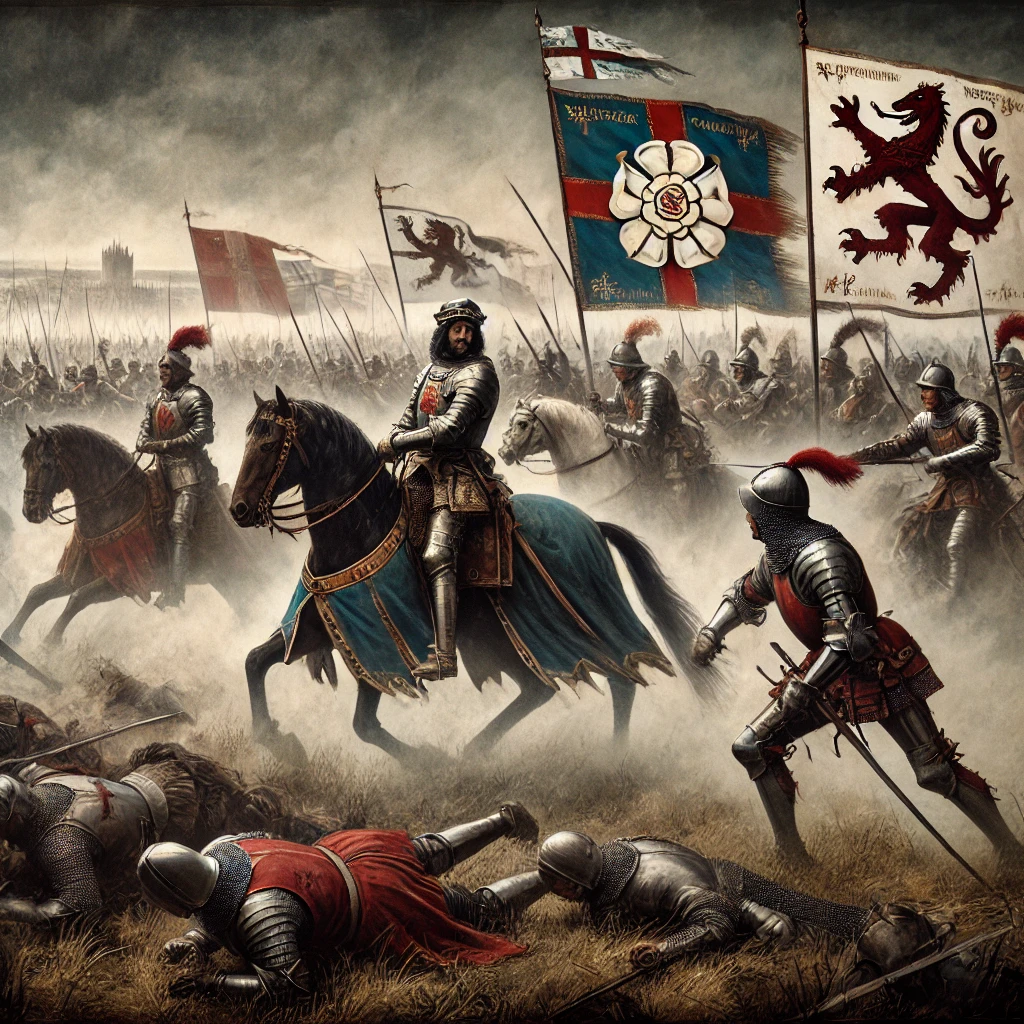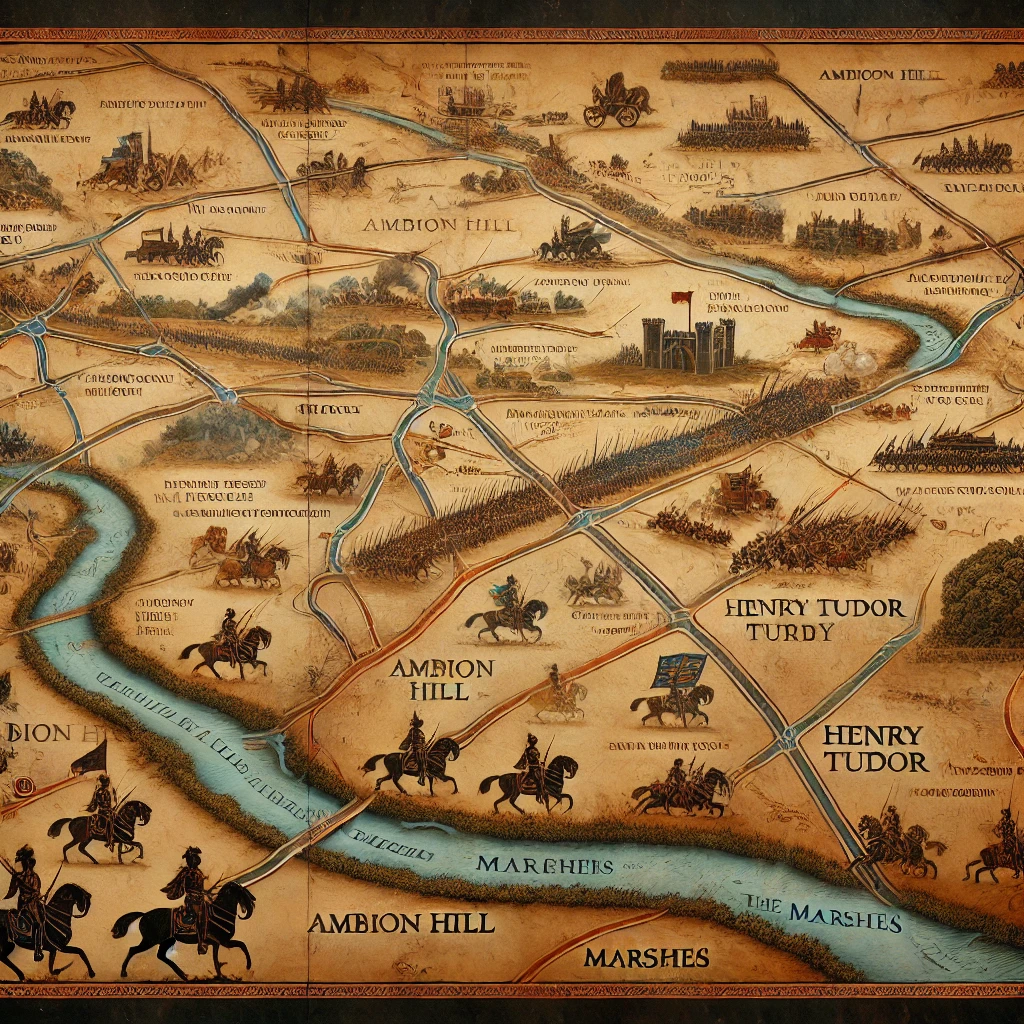On August 22, 1485, the Battle of Bosworth Field marked a decisive turning point in English history. This pivotal battle took place near the village of Bosworth in Leicestershire and was the culmination of a series of conflicts known as the Wars of the Roses, which pitted the rival houses of Lancaster and York against each other. The battle was fought between the forces of Richard III, the last king of the House of York, and Henry Tudor, who would become Henry VII, the first king of the House of Tudor.
The battle was significant not only for its immediate military outcome but also for its broader implications. Richard III’s defeat led to the end of the Plantagenet dynasty and the establishment of the Tudor dynasty, which would bring about a new era of relative stability and significant political and social changes in England. The battle’s outcome was influenced by various factors, including political alliances, military strategies, and the shifting loyalties of key supporters.

The Aftermath and Historical Impact
The victory of Henry Tudor at the Battle of Bosworth Field had far-reaching consequences for England. Richard III was killed in the battle, and Henry VII was crowned king, marking the beginning of the Tudor dynasty. Henry VII’s ascent to the throne effectively ended the Wars of the Roses and initiated a period of relative peace and consolidation in England. His reign was characterized by efforts to strengthen the monarchy and stabilize the country after years of civil conflict.
The establishment of the Tudor dynasty also set the stage for significant historical developments, including the reign of Henry VIII and the eventual establishment of the Church of England. The Tudor period saw considerable changes in English politics, religion, and society, shaping the course of English history in the centuries that followed. The legacy of the Battle of Bosworth Field is reflected in the lasting impact of the Tudor dynasty on English history and the transformation of the country during this pivotal period.

Legacy and Commemoration
The Battle of Bosworth Field remains an important historical event, and its legacy is commemorated in various ways. The site of the battle is a significant historical landmark, and efforts have been made to preserve and interpret the location for visitors and scholars. Historical reenactments and educational programs help to bring the events of the battle to life and provide insight into the historical context of the conflict.
The battle’s significance is also highlighted in popular culture, including historical novels, films, and documentaries that explore the dramatic events of August 22, 1485. The story of the battle and its impact on English history continues to captivate audiences and scholars, contributing to the ongoing interest in the Wars of the Roses and the Tudor dynasty.

August 22, 1485, stands as a defining moment in English history, marking the end of one era and the beginning of another. The Battle of Bosworth Field was a pivotal conflict that reshaped the political landscape of England and set the stage for the significant developments of the Tudor period. The legacy of this historic battle continues to be remembered and studied, reflecting its importance in the broader narrative of English history.
